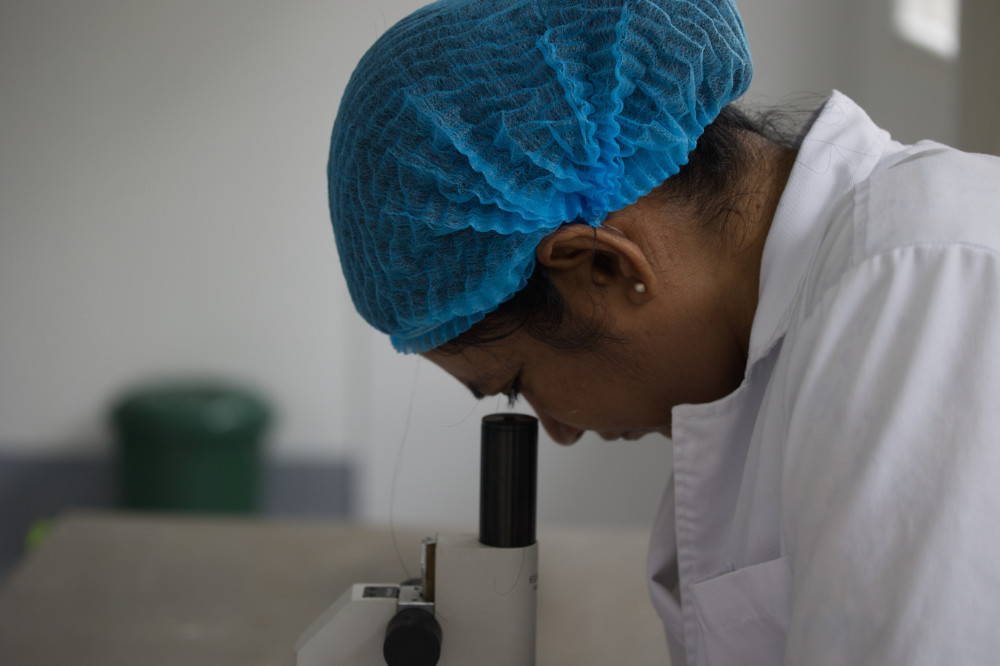Sustainability
Growing for Tomorrow
At Spado, our mission is to minimize the use of chemicals in agriculture, paving the way for a more sustainable future. With our dedicated Research and Development Laboratory, led by senior scientist Dr. Jegathambigai Velmurugu, we are pioneering methods to cultivate and harvest specific strains of Trichoderma and mycorrhizae.
What are Trichoderma and mycorrhizae? Trichoderma and mycorrhizae are both types of fungi that form symbiotic relationships with plants, aiding in nutrient uptake and disease resistance, resulting in healthier and stronger plants.
We believe in sharing our advancements for the greater good. The products we develop are available to enhance the health and productivity of your farm. For more information, we invite you to contact our team.

Benefits of Using
Trichoderma and Mycorrhizae
in Agriculture:
Benefits of Using
Trichoderma and Mycorrhizae
in Agriculture:
Mycorrhizae:
Mycorrhizae form a symbiotic relationship with plant roots, significantly expanding the root surface area. This enhances the plant’s ability to access water and nutrients, leading to stronger, healthier plants.
Mycorrhizae are particularly effective at improving the absorption of phosphorus, a critical nutrient often limited in soils. They also help plants access other essential nutrients, including nitrogen, potassium, and trace elements.
Mycorrhizae contribute to the formation of soil aggregates, improving soil structure and aeration. This leads to better water retention and root penetration, creating a more favorable environment for plant growth.
Mycorrhizae help protect plants from root pathogens by enhancing the plant’s immune response and creating a physical barrier against infections. This reduces the need for chemical treatments and supports healthier crops.
By improving water uptake and storage within the soil, mycorrhizae help plants withstand periods of drought and water stress, ensuring more consistent growth and productivity.
Like Trichoderma, mycorrhizae are a natural solution that supports sustainable farming practices. Their use reduces the need for synthetic fertilizers and pesticides, promoting a more balanced and resilient agricultural ecosystem.
The use of mycorrhizae can lead to reduced input costs by improving the efficiency of nutrient use and reducing the need for chemical fertilizers. This results in healthier plants and higher yields with lower overall expenses.
Mycorrhizae are fully compatible with organic farming practices. Their natural and beneficial properties make them an ideal choice for organic growers looking to enhance crop health and productivity without synthetic inputs.
Trichoderma:
Trichoderma species promote plant growth by improving root development and nutrient uptake, resulting in healthier, more vigorous plants with increased yields and superior quality.
Trichoderma acts as a natural biocontrol agent, protecting plants from a range of soil-borne pathogens. It effectively combats diseases like root rot, wilt, and damping-off, reducing the need for chemical fungicides.
By decomposing organic matter, Trichoderma enriches the soil with essential nutrients, enhancing soil structure and fertility. This creates an optimal environment for plant growth and development.
Plants treated with Trichoderma demonstrate greater resilience to environmental stresses such as drought and extreme temperatures, ensuring consistent crop production even under challenging conditions.
As a natural and organic solution, Trichoderma supports sustainable farming practices by reducing reliance on chemical inputs, promoting a healthier ecosystem, and contributing to long-term agricultural sustainability.
Incorporating Trichoderma into your agricultural practices can lead to significant cost savings. By lowering the need for chemical fertilizers and pesticides, farmers can reduce input costs while maintaining high levels of crop productivity.
Trichoderma helps solubilize and mobilize essential nutrients such as phosphorus and micronutrients, making them more accessible to plants. This ensures optimal nutrient uptake and more efficient use of fertilizers.
Trichoderma is an approved input for organic farming systems, aligning with organic farming principles. It offers a reliable option for organic growers to maintain healthy crops without relying on synthetic chemicals.
